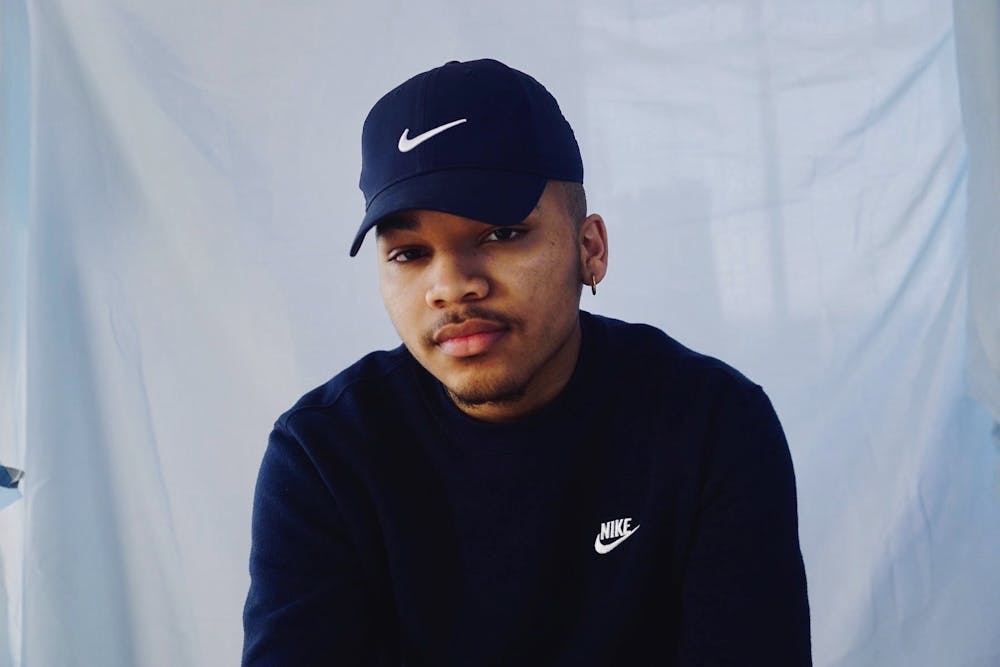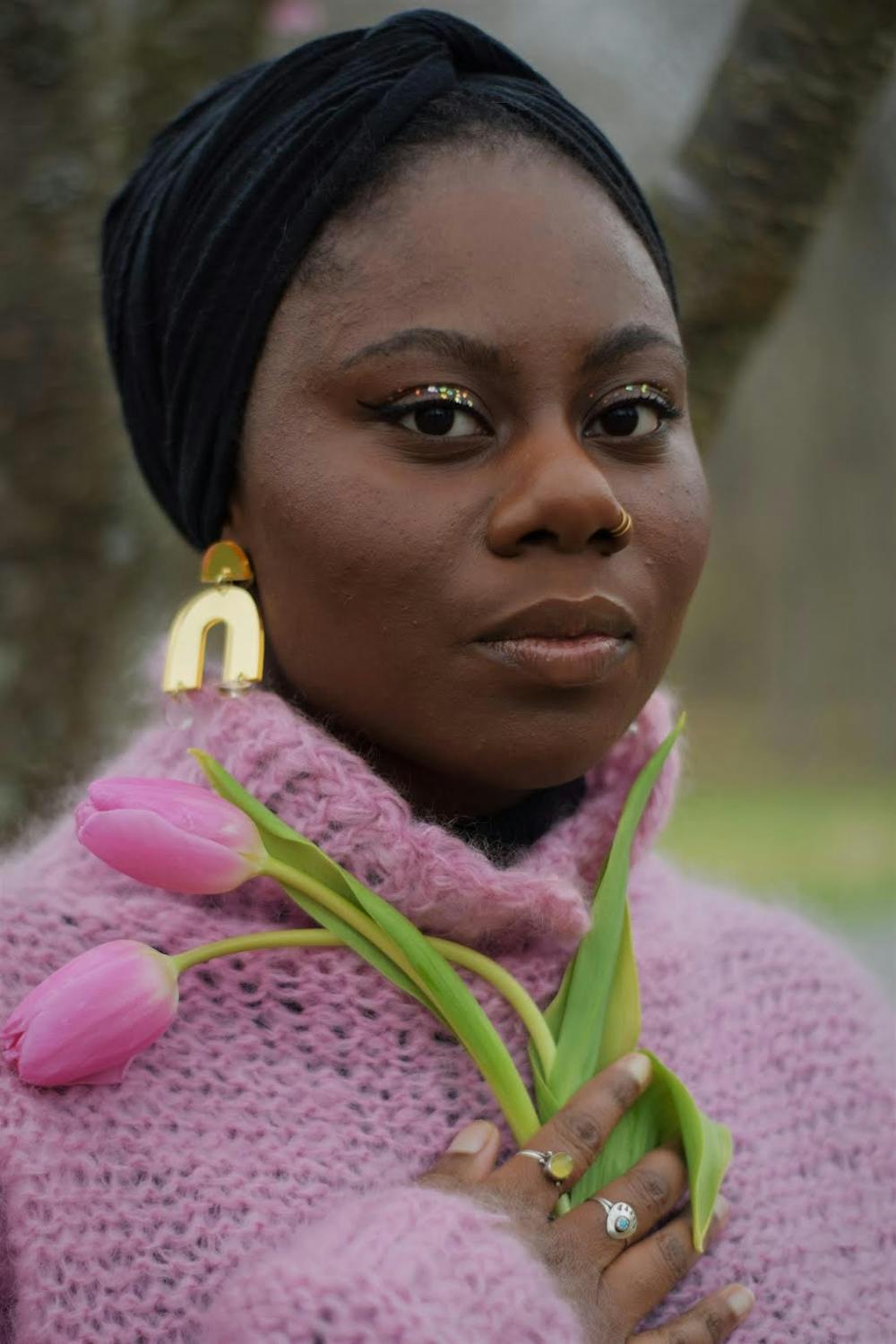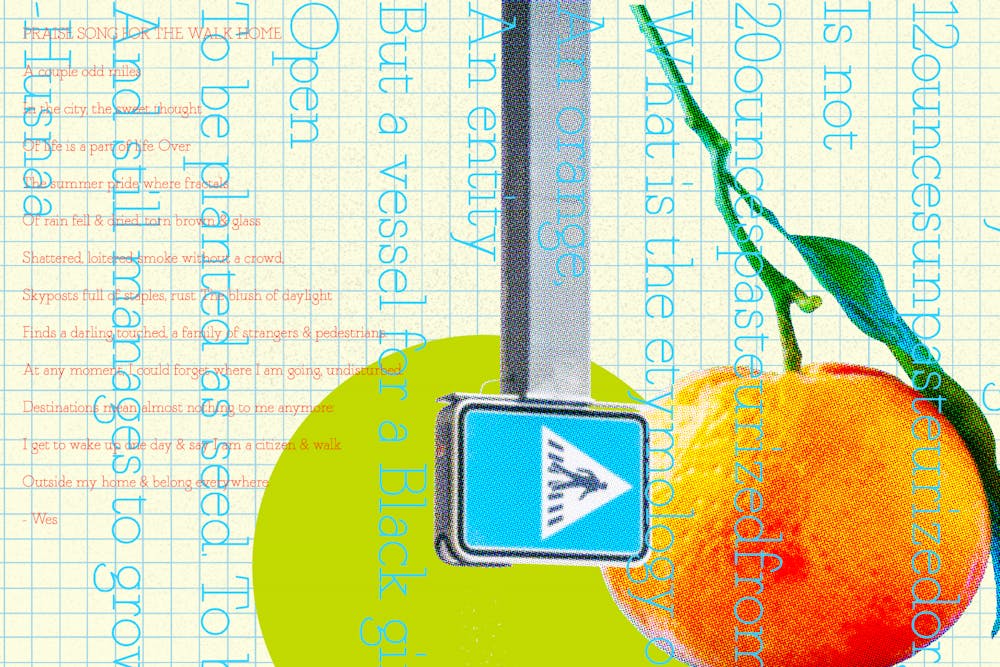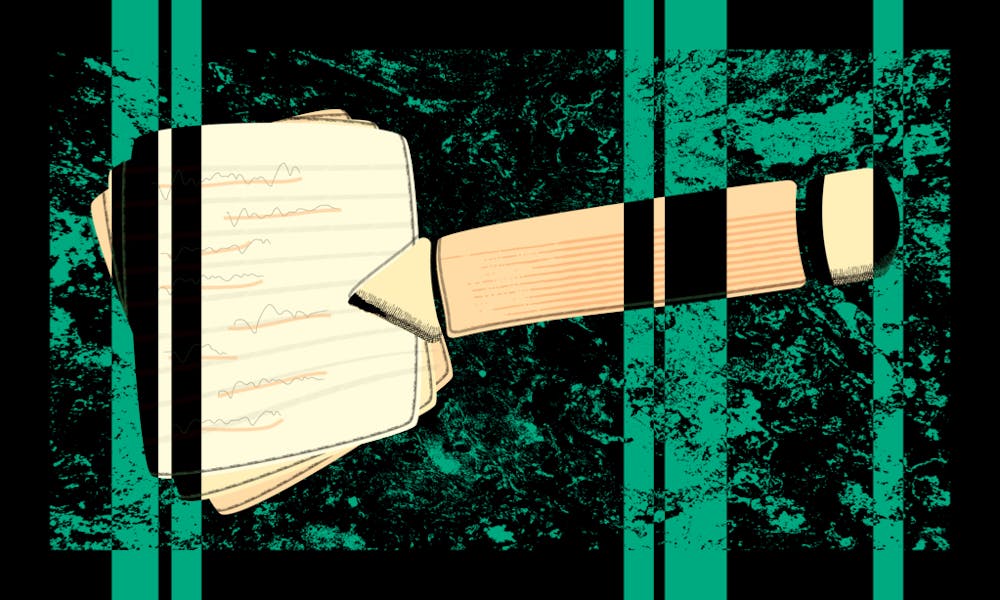“This is what gives me breath, gives me energy, what makes me wake up in the morning.”
Husnaa Hashim (C’22) finds a new gem in the abundance of herself every day. As she scribbles in her journal, taps away at her phone, finds a receipt to record a thought on, her process of poetry never ends. “I write because this is my survival mechanism,” she says.
“I’m letting the world be great in front of my eyes.”
Through the lens of poetry, Wes Matthews (C’23) sees himself in a continuous process of connecting to people and places. “You can be a poet in a lot of different ways—even just by observation,” he says.

Before stepping into the Penn poetry scene, Husnaa and Wes each spent their senior years of high school as the Youth Poet Laureate of Philadelphia (YPL), a civic position given annually to the teenager who best represents the voices of the city’s young poets. With Philly’s primary Poet Laureate as a mentor, YPLs organize and attend readings, workshops, and year–long service projects throughout Philadelphia.
Despite their different literary styles, the two young artists both emphasize that poetry is not merely a style of writing—it is a style of life. Poetry is how they understand the world and everybody inside of it. Poetry is how they survive.
Husnaa says it is “a disposition, a worldview,” one that the two Laureates agree is not given the right attention. She adds that you don’t need a typewriter to be a poet—you don’t even need a pen and paper. “Poetry is no different than everyday life,” she continues, paraphrasing Gwendolyn Brooks.
The young poet has lived out these words as her own. Writing, performing, and publishing since the age of ten, she’s strung together a long list of honors, with over 20 recognitions from the Scholastic Art and Writing Awards, including a National American Voices Medal. A slam poetry champion, Husnaa was encouraged by mentors and peers to apply to the YPL program, which named her Laureate for 2017–18. Her first book of poems, Honey Sequence, was published at the end of the program.
Yet none of that captures any of what poetry has given her.
Her love for the art stems from her Iranian roots—a culture in which Husnaa feels is “a very national thing” to venerate poets and poetry—much more so than in today’s America. Their work is part of a greater collective cultural identity, one that Husnaa has longed for here. Homeschooled for much of her childhood, first in Maryland and then in Philly, Husnaa strung together rhymes with her mother before she even learned how to write.
To her, being a poet is just being Husnaa. “I don't even say I’m one when I meet people,” she explains. “The title has a negative effect on the way I view myself as expansive.”

As the YPL, Husnaa ran workshops throughout the city to promote her idea of poetry as a survivalist practice. With attendees ranging from seven to seventy years old, she encouraged everyone to magnify their "tiny habits" with the belief that it’s the small things that keep us going.
“Poetry is very spiritual to me,” she says, noting her idols: Audre Lorde, Cheryl Clarke, June Jordan, and Octavia Butler. “Sometimes I’ll just write something, and it’ll be something that I had no way of having access to before that moment. For me, in that way, I feel chosen.”
The nurturing warmth of poetry was also felt through Wes’ upbringing, which is why he believes he has been able to have such an intimate connection to the practice. It helps that his mother, Airea D. Matthews, and his uncle, A. Van Jordan, are both well–known poets and professors.
“Having a foundation in poetry as a child will sustain you for life…you experience so much internal freedom, and it’s kind of hard to let go of that feeling.”
In his 2018–19 term as the YPL, Wes held workshops for elementary–school students across the city in hopes of fostering that same foundation. Without forcing any definitions on them, he gave them the opportunity to think more about how they personally experienced their world.
Aside from that, he’s appeared on the stage of TEDxDetroit and his work can be seen on the pages of publications from around the country. Like Husnaa, he too is a slam poetry champion.
“Poetry is an open field,” Wes illustrates, humbly aware that he exudes the qualities of a true lyricist. “It allows you to exercise your imagination and creative freedom and intuition in ways that only you can.”

This is a conversation Husnaa and Wes would rather have under the cozy roof of Kelly Writers House, where they’ve both worked and performed since starting at Penn. But the passionate certainty in their voices shows that any setting, even a spotty Zoom call, will work just fine.
At this point in their college journey—though they mutually agree that it feels like a limbo right now—they both feel closer to their city than ever before. A few years removed from their YPL days, and with a lot more free time amid the pandemic, they see their homes with great clarity now.
Exploring Philly has “rerooted” Wes in an admiration of poetry and appreciation of its rigors. Constantly mapping out the city in the lines of his mind, walking the streets without having somewhere to be every hour of the day, he believes in the importance of choosing to “put down the books and live history.” Similarly, Husnaa has become “extra protective” of her city in recent days. As a student here, she’s had a much different vantage point than she did from her West Philly neighborhood. Adopting the mindset that “it’s not just about me,” Husnaa hopes that Philly’s inhabitants can start to sing a more collective verse.
As these two poets take this moment to reflect on how they’ve grown since high school, Husnaa believes that everyone can think about the rhythm animating our everyday lives, in Philly, or wherever in the world we might be right now.
“Be mindful of the way you move through the city, and how that feels in your body,” Husnaa encourages us. “Reflect on why you feel that way. Reflect on the other people living here too—even the ones who might have nothing to do with you.”

